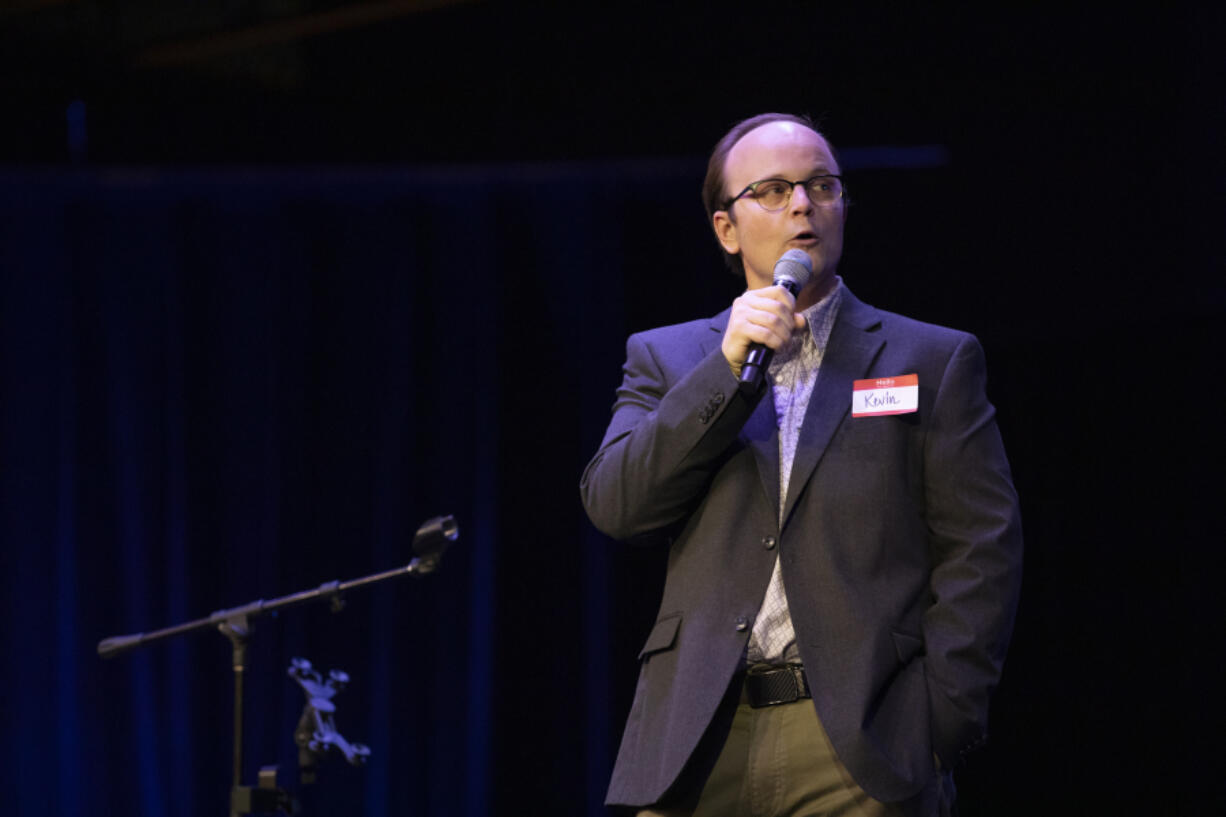Community members, advocates and health professionals met under a canopy of lights Wednesday at Living Hope Church for XChange Recovery’s Community Education Night.
“The idea is to support families, that’s a big deal,” said Vicky Smith, co-founder of XChange Recovery. “There are a lot of families that have struggled and that are silently struggling with these issues. We just want you all to know that you are not alone.”
Organizers said the event — which they anticipate will be held quarterly — was meant to bring together families who have loved ones struggling with addiction and community members seeking to support families in need.
The event featured booths from community organizations such as Recovery Cafe Clark County, Restored and Revived and Carelon Healthcare Services.
Dr. Kevin Fischer, chief medical officer and physician for Columbia River Mental Health Services, provided surprising statistics on annual deaths caused by drugs.
From 2010 to 2020, about 65 Clark County residents died each year from drug overdoses. But since fentanyl hit streets around 2020, that number has doubled to about 110 deaths per year.
Fischer told the about 95 people at the event there is no casual use of fentanyl.
The drug is not only easily available but inexpensive. He said a heroin addiction can cost $400 a day, while a fentanyl habit can cost about $50 a day.
“How much did you pay for your last cup of coffee — four bucks? You could have bought four or five fentanyl pills,” Fischer said. “And about two of those would potentially be lethal to you.”
A fentanyl addiction can take hold within a few weeks, Fischer said. Fentanyl rushes to the brain quickly, and creates an immense euphoric feeling. However, the drug creates intense withdrawals — Fischer linked the feeling to a fight-or-flight reaction.
And people learn they can diminish withdrawal by using more fentanyl.
Designer drugs such as xylazine or “tranq” are also being used in Clark County at an increasing rate. Tranq has been tracked in Clark County for at least 18 months. The drug is a horse tranquilizer and can cause complicated infections on the arms and legs.
Fischer said about 10 percent of fentanyl has tranq in it.
“Five years ago I never thought I would look back to the era of heroin and wish that it was back. But that’s really where we are,” Fischer said. “I can tell you that designer drugs like fentanyl are not going away until they’re replaced by something more potent and cheaper.”
Switch the perspective
Fischer advised residents to stay vigilant with loved ones — saying prevention is a lot easier than treating addiction.
He pointed to strategies in the 1980s and 1990s that didn’t always work — programs such as DARE advised kids to just say no to drugs.
“It turns out people use drugs for a reason. They use them to cope,” Fischer said. He then pointed to the various treatment programs and resources in our community which help people gather other coping skills.
Nicole Hamberger from Southwest Washington Accountable Community of Health closed the event with Narcan training for attendees.
“This isn’t a them problem, it’s an us problem,” Hamberger said. “We need to switch that perspective that this is only a problem for the homeless or only a problem for people addicted to fentanyl. … If we can shift the perspective and all be prepared on how to reverse an overdose, we will save lives.”
XChange Recovery partnered with various community organizations, such as Thrive2Survive and Living Hope Church, to help guide the event’s mission of being educational and a safe space.
At the start of the evening, a steady stream of people entered the venue. Smith approached a young woman who was walking around.
The woman said her mother struggles with addiction and she didn’t know too much about the event, and if it was the right place for her.
“This event is for you,” Smith said, before telling her about various resources.




